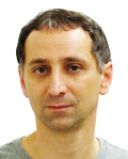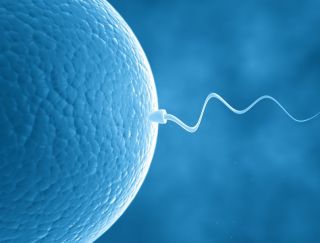
Environment
What is Life?
Defining the word life is critical to a rational debate on abortion.
Posted November 1, 2012
There is no universally accepted scientific definition of life, but most definitions are a variation on: life is the “condition that distinguishes animals, plants, and other organisms from inorganic or inanimate matter, characterized by continuous metabolic activity and the capacity for functions such as growth, development, reproduction, adaptation to the environment, and response to stimulation” (Oxford English Dictionary). Thus scientifically speaking animals, plants, and bacteria are all examples of living things, as is a liver cell in an incubator.

This standard biological characterization of life is of course at odds with how the word life is generally used in the abortion debate. Discussions on abortion are often anchored by the question of when life begins. For example, the recent comments of the senatorial candidate Richard Mourdock implicitly reflected this in his statement “And even when life begins in that horrible situation of rape, …”. Indeed, the official position of the Catholic Church is that life begins at conception, that is, that the act of a sperm fertilizing an egg creates life. A sperm is a living cell, an egg is a living cell, and the union of a sperm and an egg creates another living cell: the zygote. In the biological sense of the word, life is certainly not created by the act of fertilization; rather fertilization is one of the many steps in the perpetuation of organisms that undergo sexual reproduction. Nevertheless, a zygote is a very special cell indeed: it is the only cell that, under the right circumstances, has the potential to develop into a complete and entirely unique human being.
Of course, as the reader has probably already noted, when most people speak of when life begins they are not actually using the term life in the scientific sense of the word. They mean when the life of a new human being begins. So the abortion issue pivots on the question: at what point in development does the collection of cells that form the fetus become a new human being? The notion of being human is generally inextricably intertwined with being conscious—or at least of having the capacity for consciousness (I am not conscious while anesthetized on a surgery table, but I clearly retain the capacity for consciousness and thus for humanness). This is generally true in the legal context as well, which is why a human body with a beating heart is considered to be legally dead (no longer a human) if there is no brain activity. If one agrees to use consciousness, or the capacity for consciousness, as the benchmark for when a human life begins, then we can make definite statements as to when a fetus cannot be considered to yet be a human being—but making definite statements as to when a fetus is a human being is much more challenging. A fetus cannot be conscious if it does not have a functional brain. Thus, a minimal set of developmental landmarks for consciousness to arise must include the presence of functional neurons—that is neurons that transmit information to each other. An additional condition is that the cortex (the more massive and evolutionarily recent part of the brain) must receive signals from the thalamus (one of the “hubs” that interfaces information between the body and the cortex). While there is ongoing debate as to exactly when functional connections between the thalamus and cortex arise it is certainly not before three months gestation1,2. Thus it can be stated with a high degree of certainty that at three months a fetus cannot be conscious.
The ongoing debate about the ethics of abortion is both healthy and necessary. But the debate will be futile if there is no attempt to use science to define what it means to be human. The task is a challenging one because it relates to two of the most profound and complex questions mankind has ever asked: what is life and what is consciousness.
There is an additional, rarely articulated, impediment to a more rational debate about abortion: our reticence to accept that our humanity, our ability to think, create, learn, laugh, and love, emerges from the physical brain. This is a concept that most people are uncomfortable with. But our reticence to acknowledge that our humanity derives solely from the brain should not come as a surprise, because this reticence is itself a product or how our brain works. The fact that something as intimate and powerful as our own consciousness arises from the conglomerate of 100 billion interconnected neurons incased within our skulls is among the most counterintuitive idea humans have ever faced. But it is counterintuitive simply because the brain did not evolve to understand itself any more than a computer was designed to write its own operating system.
 For more on the how the brain works, and its flaw and limitations.
For more on the how the brain works, and its flaw and limitations.

